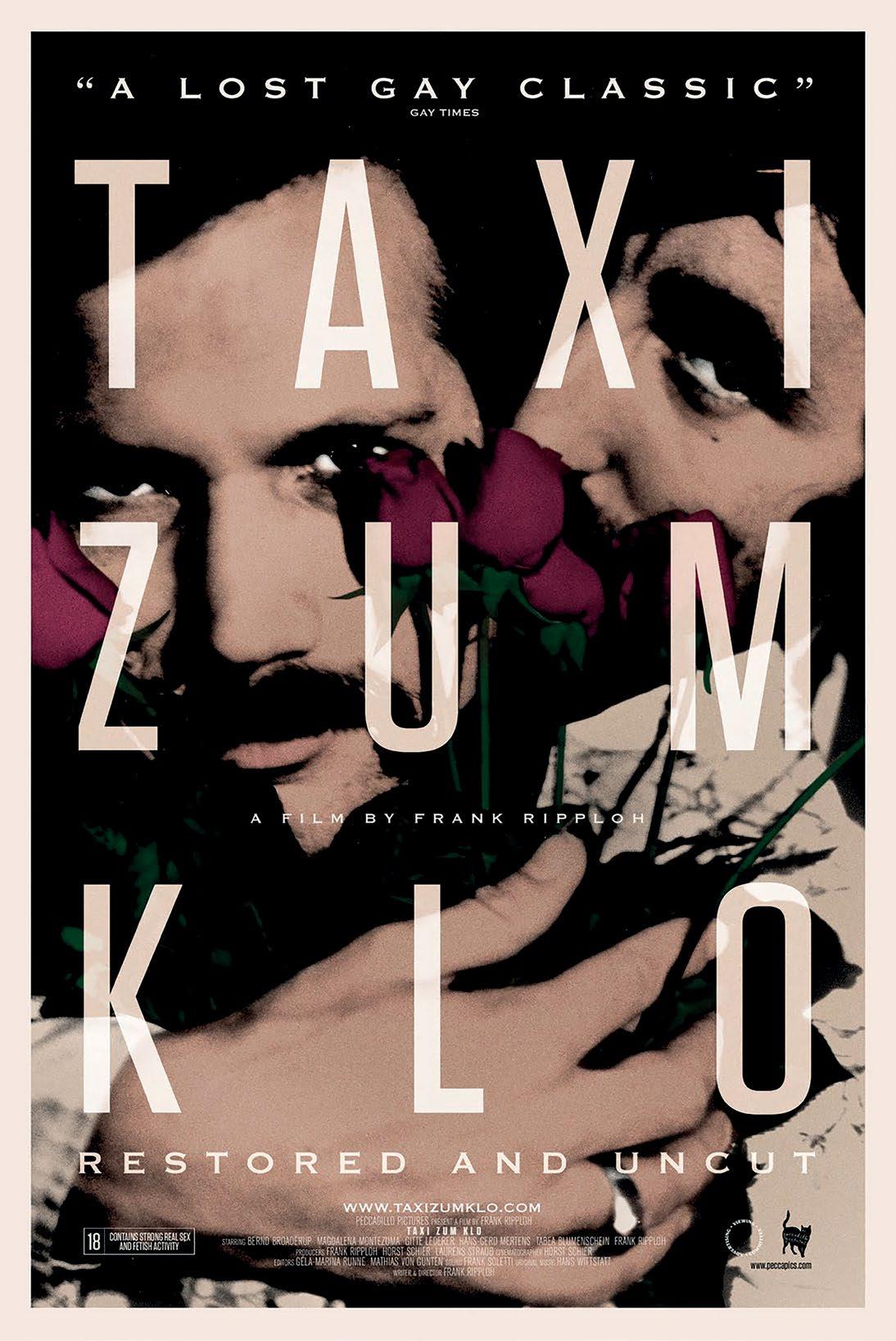
2 minute read
The Special Shelf: Taxi Zum Klo
Jason Shawhan
Forty years ago, Frank Ripploh’s film Taxi Zum Klo hit theatres the world over, and the shockwaves are still reverberating. An early flirtatious scene at a gas station finds our randy protagonist (Ripploh, playing a version of himself) giving his number to the attendant, and the flattered and flustered gas pump guy’s hand melts the layer of ice on Frank’s hood, leaving a hand-shaped mark signifying gay desire that burns through even the elements themselves. It sets a tone, as we follow Frank’s escapades as an elementary schoolteacher and sexual adventurer, a decent friend and an uneven boyfriend, and a scruffy mass of horny neuroses in pre-AIDS-era West Berlin. It’s a great film that delights in surprising the viewer, devoted to examining social inequality and displaying fuzzy butts in equal measure.
Advertisement

In a way, Ripploh’s witty (even in subtitled German) and radical film is a response to the attitude (and success) of Looking For Mr. Goodbar, which—despite having dynamite performances from Diane Keaton and Tuesday Weld, with Richard Gere making his big screen debut with a jockstrap and a dream—really does read like an R-rated afterschool special that promises that sexually confused men will rape and murder women who are looking for sexual agency.
Taxi Zum Klo is just as concerned with the erotic life of educators, but its moralism is much more focused on interpersonal boundaries rather than upholding heteronormative scare tactics. And though Goodbar (not streaming anywhere or available on DVD or blu-ray) had Donna Summer and Diana Ross on its soundtrack, TZK features the best cinematic use of Sylvester (“Mighty Real (Reprise)” at that, for a sultry massage sequence) as of yet.
To a certain extent, this is one of those Not In Front Of The Straight People films that I like to talk about sometimes, mainly because this is a movie that does not center itself or cater to a straight audience. It is concerned with being queer, and a lot of the issues that derive from that. It certainly still feels deeply relevant — forty years on, we’re still determining how we define our relationships in the shadow of straight, patriarchal traditions.
Monogamy, what straight folks think, getting property and building a life: these are all issues that we’re in the process of hammering out on a daily basis.
So come on down for the frank sexual content if you like, because it is present and unapologetic. But what lingers are the emotional questions and the puckish, endearing picaresque that Ripploh has structured this film into. It is part documentary, part sexploitation, above all (to quote the late Peter Rauhofer) a drama with a beginning, a middle, and no end.
Taxi Zum Klo is currently streaming on Tubi.








